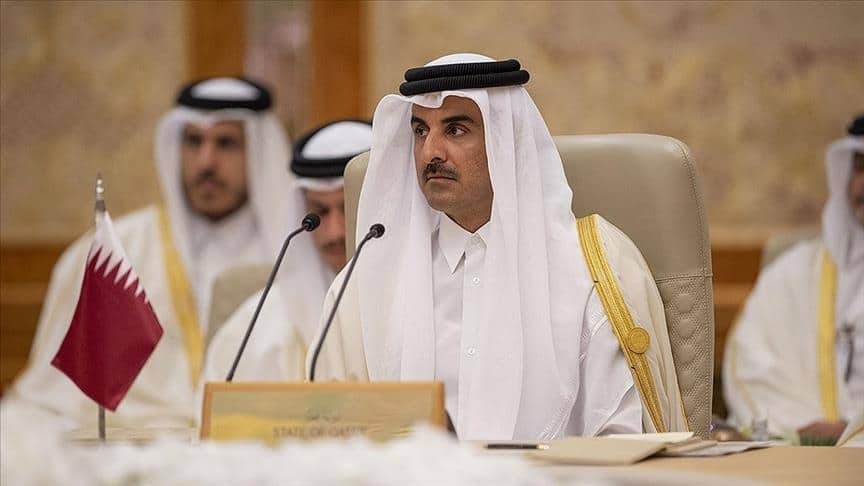Why has Qatar’s role diminished to that of a “postman”?
The story of Qatar’s rise to power in the political equations of the Middle East is a strange story of a small country entering the game of the big ones, only because of energy reserves and a treasury full of windfalls. When Tamim bin Hamad al-Thani took the reins of power with a coup, few thought that only after two decades of studying at the Royal Sandhurst College, he could become one of the influential figures in the process of “Islamic Awakening” in the Arab Middle East. Relying on gas revenues, mediation in political crises, and portraying the Al Jazeera network, “Amir Javan” was able to play an important role in the process of the fall of some dictators close to Riyadh-Abu Dhabi and enter into an unwritten alliance with the Brotherhood axis alongside Turkey. The ambition of the rulers of Doha did not end only with the fall of the reactionary dictators, and in a joint project with the Kingdom of Saudi Arabia and the Zionist regime, they decided to overthrow one of the main sides of the Axis of Resistance, namely the government of Bashar al-Assad.
Since the beginning of the Syrian civil war, the Qataris, along with Turkey and Saudi Arabia, put the policy of military-armament support for the Syrian opposition and terrorist groups on their agenda and spent billions of dollars in the Syrian field. For example, in 2013 alone, Qatar gave 3 billion dollars to the opposition of the Assad regime. Hamad bin Jassim al-Thani, the former Prime Minister of Qatar, had previously revealed that the project to overthrow the Syrian regime with a budget of 2 trillion dollars was first started by the management of Doha, but after a few months, with the appointment of Bandar bin Sultan in the Saudi intelligence apparatus, it gradually Riyadh demanded to take the case from Doha and become the center of guidance of the Syrian opposition. At that time, the destructive role of Qatar had a certain influence on the relations of the resistance axis, which caused the Hamas office to be moved from Damascus. Some analysts believe that one of the reasons for Turkey’s military presence in northern Syria was Doha’s financial support and encouraging the Turks to adopt radical positions against the Syrian legal system.
While the Qataris have always tried to show themselves as supporters of the Palestinian nation, in 1996 they were the first Persian Gulf country to establish economic relations with the Zionist regime and allowed the occupiers of Al-Quds to open their commercial office in Doha. According to some news sources, Qatar and the Zionist regime had more or less hidden political-economic relations until 2009.
The new curtain of Qatar’s non-constructive role was displayed during the indirect negotiations between Iran and the United States for the release of $7 billion from Tehran’s blocked assets in South Korea. While Doha, as a non-NATO ally of the United States and the host of the Al-Adeed military base, intended to become the diplomatic arm of the Biden administration in regulating Washington’s relations with Kabul-Tehran, a constructive step to reduce the differences between Tehran and Washington and even the easy release of Iranian assets in Seoul did not take it. Some analysts believe that one of the reasons for the failure of the sanctions neutralization talks was the selection of an inappropriate mediator to control the disputes with the United States. The mediation of the Qataris in the direction of freeing Iran’s money has not achieved anything for Tehran so far.

